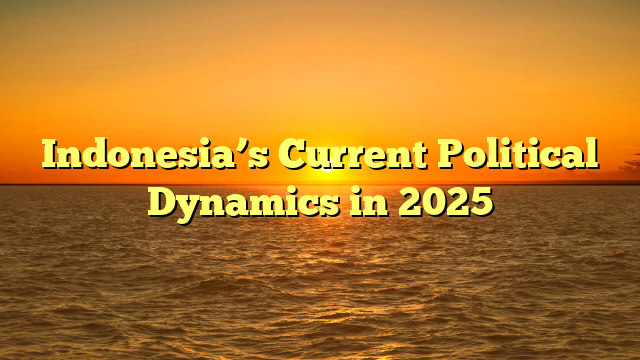Indonesia’s political climate in 2025 reflects both continuity and transformation as the country adapts to new leadership following the 2024 general elections. After a decade under President Joko Widodo, whose administration focused on infrastructure development and economic modernization, the transition of power has brought renewed debates over governance, democracy, and the nation’s future direction. The new government faces the task of maintaining stability while responding to the growing maritim4d demands of citizens in an increasingly interconnected and competitive global environment.
At the heart of Indonesia’s current political discourse is the challenge of sustaining economic growth. The country’s leadership seeks to continue Jokowi’s vision of transforming Indonesia into one of the world’s largest economies by strengthening manufacturing, digital innovation, and renewable energy. However, global economic uncertainty, particularly rising geopolitical tensions and fluctuating commodity prices, creates obstacles for Indonesia’s export-driven sectors. Policymakers are now under pressure to strike a balance between encouraging foreign investment and protecting local industries from external vulnerabilities.
Domestically, coalition politics continues to shape governance. Indonesia’s multiparty system, though vibrant, requires coalition-building to secure majority support in parliament. This structure often promotes political inclusivity, but it can also lead to fragile alliances and compromises that slow down reform. For the current administration, navigating these dynamics is critical to ensuring that long-term national priorities are not overshadowed by short-term political bargaining.
The state of democracy also remains a focal point of public debate. Indonesia has made great strides since the end of authoritarian rule in 1998, yet concerns about democratic backsliding persist. Issues such as disinformation during elections, the politicization of identity, and the weakening of institutional checks and balances raise questions about the resilience of Indonesia’s democratic system. Civil society groups continue to push for greater transparency, accountability, and the protection of civil liberties, warning that complacency could erode hard-won democratic gains.
Corruption remains a sensitive and unresolved issue. The Corruption Eradication Commission (KPK), once viewed as a powerful watchdog, has faced criticism over its reduced independence following legislative reforms. Many Indonesians see the fight against corruption as essential to improving public trust in government institutions. Without meaningful progress in this area, political legitimacy may weaken, regardless of economic achievements.
On the international stage, Indonesia continues to embrace its role as a middle power. Its leadership within ASEAN and active participation in global forums such as the G20 underline its strategic importance. The government emphasizes a foreign policy of balance—strengthening ties with major partners like the United States and China while maintaining independence and neutrality in global conflicts. Regional security issues, including the South China Sea disputes, further highlight Indonesia’s role as a mediator and stabilizer in Southeast Asia.
Looking forward, the success of Indonesia’s political journey will depend on how effectively the government can balance reform with stability. Citizens expect leadership that not only drives economic growth but also upholds democratic values and addresses inequality. With its large and youthful population, rich natural resources, and strategic geopolitical position, Indonesia has the potential to emerge as a model for democratic governance in the Global South. Whether it can fulfill this promise will be determined by the choices its leaders make in the coming years.
